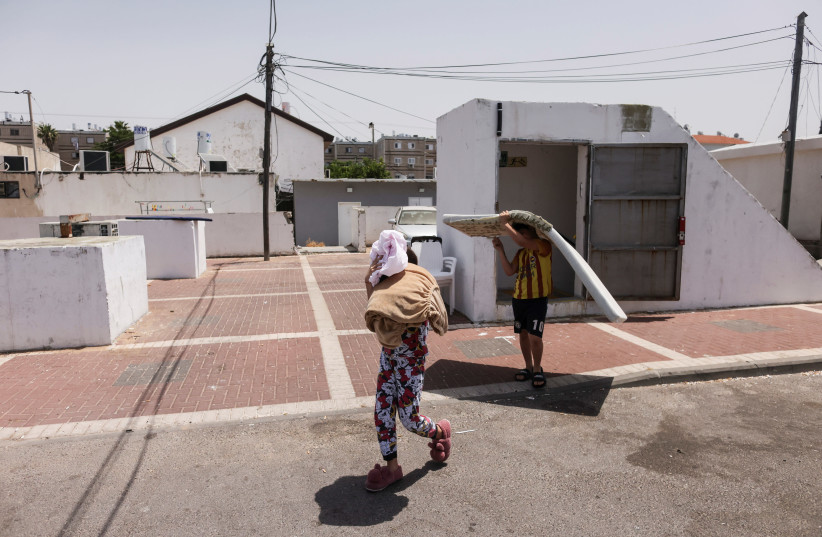A short and difficult sentence on a morning like this, when every name echoes our loved ones, yet this is what we must say to one another:
For years, the State of Israel preferred to protect its soldiers and its civilians on the front lines.
Israel preferred to build various systems that protected its soldiers, while civilians ran to safe rooms. The different cabinets chose to avoid making difficult decisions and mothers lay down on the roads, shielding their children with their bodies.
The preference was that small children and mothers sing "Code Red" while running to safe rooms [an alert for incoming rockets] to avoid endangering our fighters out of fear of protests.
The State preferred to build more and more protective shelters and safe rooms, and once a year forced holidays were imposed on the surrounding area's residents. We even coined a term for this - a Cycle.

Our lives revolved around these cycles of violence.
The cost of living in a cycle of violence
The price of this acceptance of cycles of missiles creates a sick society and puts the children at the forefront.
Since the outbreak of this terrible war, we have paid heavy prices. For every bereaved family, the price is heavy and the pain immense. However, as a State, we have been paying an unbearable price for 18 years, which peaked on October 7th. A price of massacre in the streets of the villages, children slaughtered in front of their parents, and women raped.
I will neither forget the sights from Kibbutz Be'eri nor the roads to the kibbutz.
That Saturday at 10:30 p.m., while I was running between houses in Be'eri, my wife Ayelet called me and said with a broken voice, "Menachem! The media is reporting 250 dead."
I replied to her while looking at the bodies on the streets and in the houses: "No, no, they haven't started counting yet."
This is what a sick society looks like.
Last week I met hundreds of students from Ashkelon who never had a quieter cycle than this one.
In a healthy society, a soldier fights at the front while the civilian sits at home.
That Saturday, we woke up as a state and decided to recognize the illness.
We chose to send the soldiers who are capable of defending themselves to the front lines, saving families from rape and burning.
We are paying the heavy price of our best sons for the treatment of this illness, but we have no other choice.
We have already paid the unbearable price.
It's time to heal our wounds
Now it's time to recover, however we will not recover in one day.
In this war, I have already lost two family members, my brother Elchanan and my very dear and close cousin, Lieutenant Pdaya Mark, of blessed memories.
During the mourning for Elchanan and before entering the Strip, Pdaya sent us a letter in which he faithfully expressed this message.
The role of society on such a morning is not only to mourn and cry as much as possible but also to remember and remind each other why our soldiers fell and why this is our hope.
This is what a healthy society looks like.
A healthy society fights for its life and protects its children, even at the cost of heavy blood.
This weekend, 13 precious, wonderful fighters fell. We must shout aloud: "1,200 in one day, never again."
Menachem Ami Kelmanson, is an Israeli who voluntarily saved hundreds of residents at Kibbutz Be’eri on October 7 with his brother Elchanan, who was killed during their heroic acts, and nephew Itiel.
